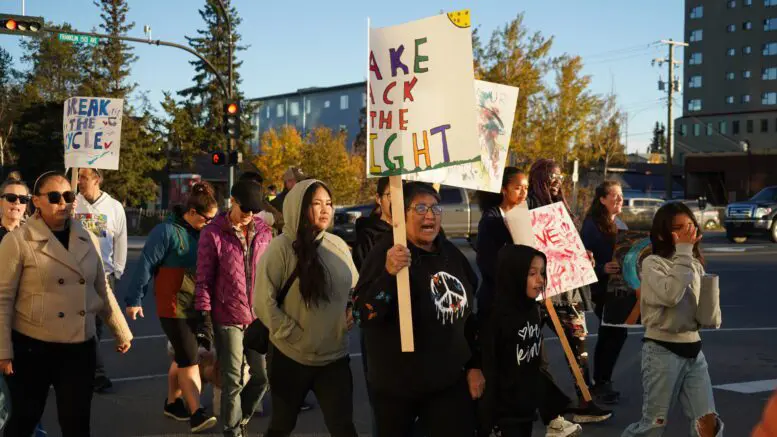“Evil lurks in the darkened corners, and not everyone is tucked safely into bed in their homes,” said Sabet Biscaye, director of the GNWT’s gender equity division, at the Take Back the Night event on Saturday evening.
Dozens of supporters rallied together at Somba K’e Park for a march against sexual violence.
“Intimate partner violence, emotional, mental and economic forms of abuse are prevalent within our northern communities,” said Biscaye. “It’s something that people experience their whole lives and have learned to internalize and accept that tainted view as normal.”
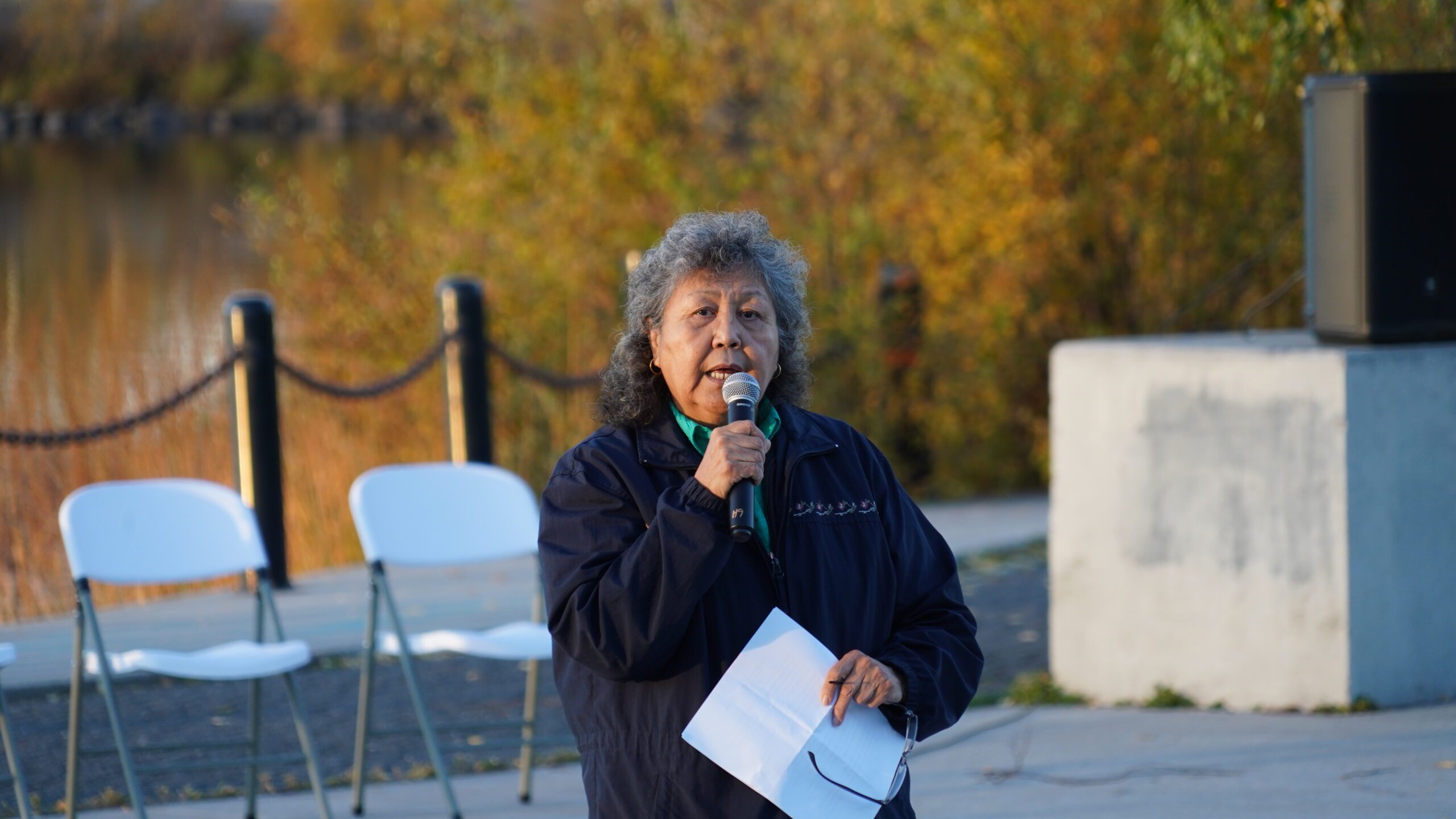
‘If you look carefully into the background of perpetrators, you will find a history of trauma. This doesn’t excuse the behavior of perpetrators, as they also need our support so that they can become part of the solution,’ said Biscaye. (Josie Jiaxuan Wu/CKLB)
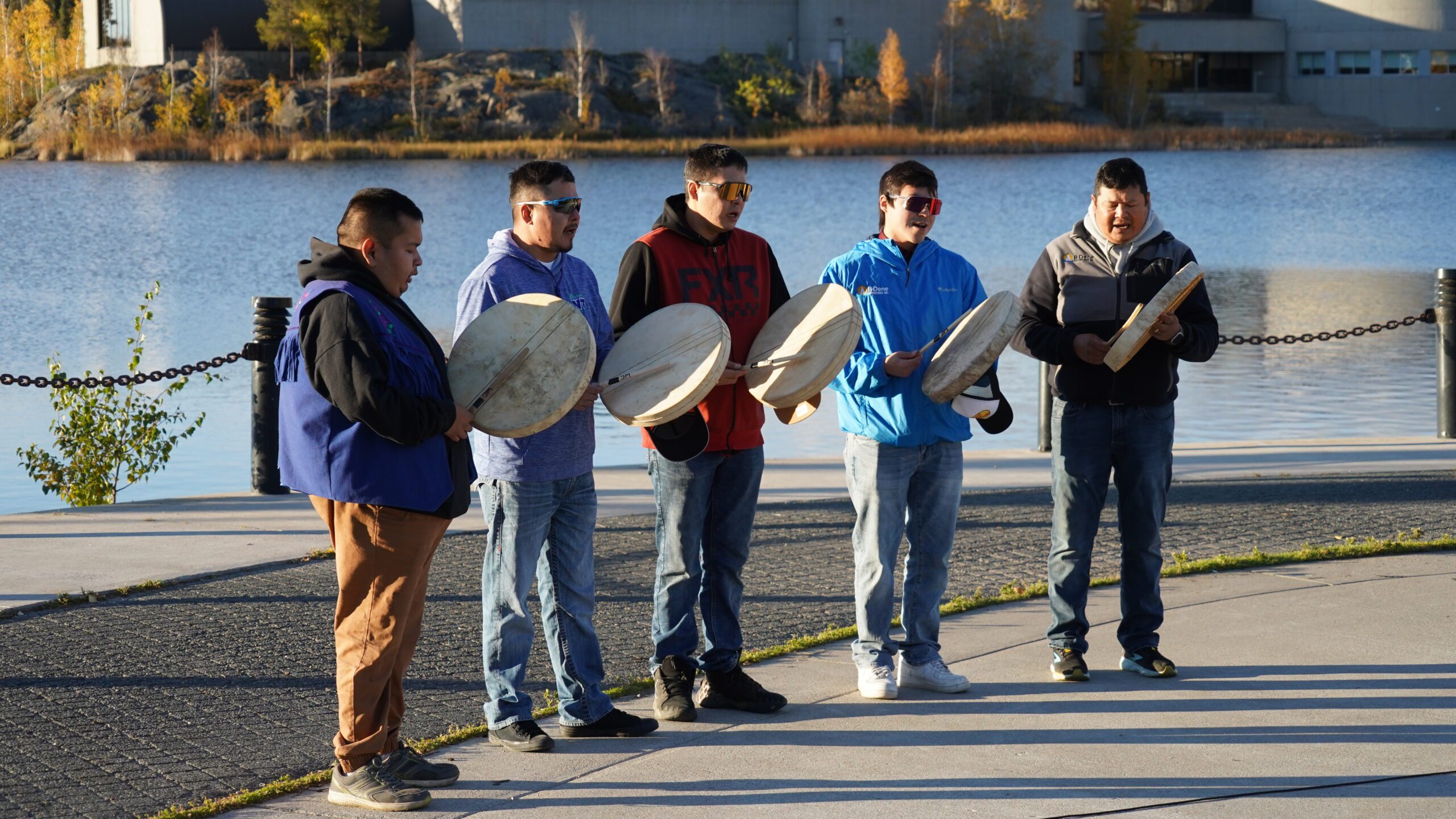
The Yellowknives Dene Drummers performed at Take Back the Night 2024. (Josie Jiaxuan Wu/CKLB)
This is the first time Take Back the Night has been held in Yellowknife in six years.
Saphire Mtongwiza, the community engagement coordinator with the Status of Women Council of the NWT, as well as one of the speakers for the march, said she’s excited to see it back.
“Yellowknife has a sense of community, and we show care for one another,” Mtongwiza said. “Yet, our city experiences a lot of violence, and it’s something that scares me as a mom.”
“We want to make sure that the streets are safe for our daughters, for women, for men, and for everybody who has to take extra precautions to ensure their own safety and the safety of those they love. We’re here for them.”
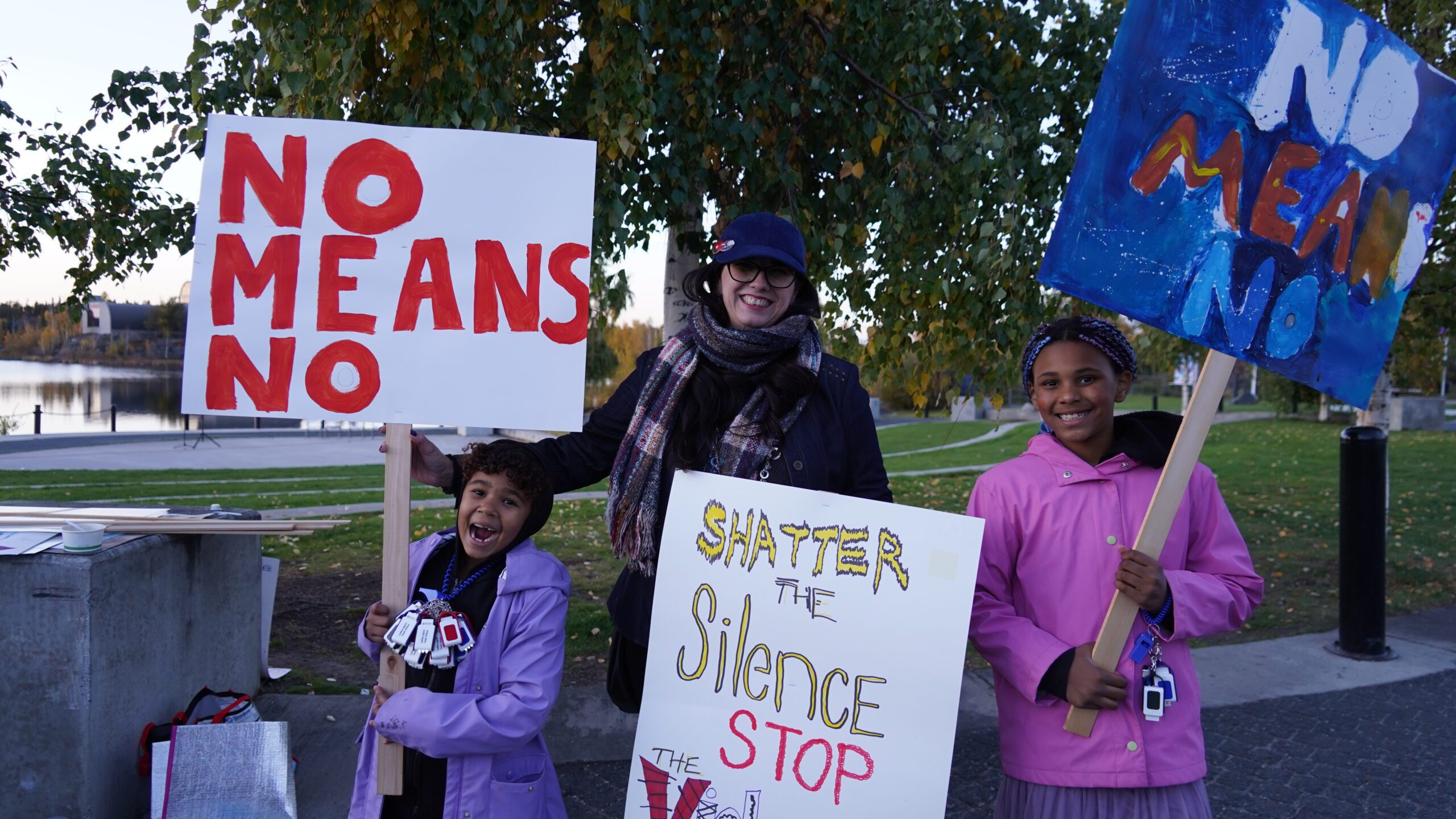
Mtongwiza and her two daughters made signs for the event. (Josie Jiaxuan Wu/CKLB)
Since the 1970s, hundreds of Take Back the Night events have been held worldwide each year to raise awareness of and against sexual violence and support survivors in their healing journeys.
This year’s event was brought back by the YWCA NWT, The Native Women’s Association of the NWT, the Status of Women Council, and the Yellowknife Women’s Society.
People made a round trip from the plaza to 49 Avenue, chanting and holding signs through Franklin Avenue before returning to the park for speeches and warm drinks.
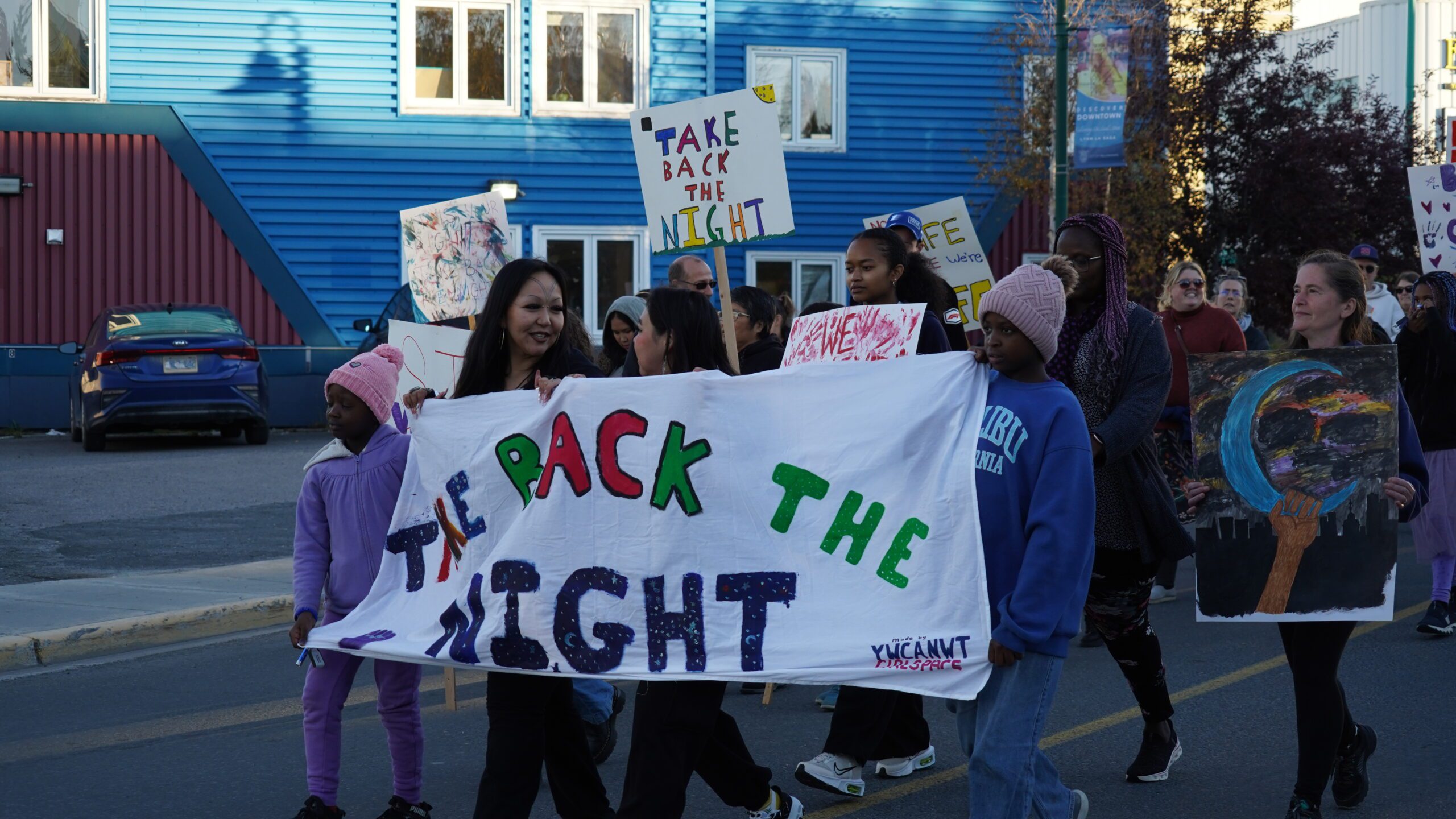
Supporters marched through downtown Yellowknife at Take Back the Night 2024. (Josie Jiaxuan Wu/CKLB)
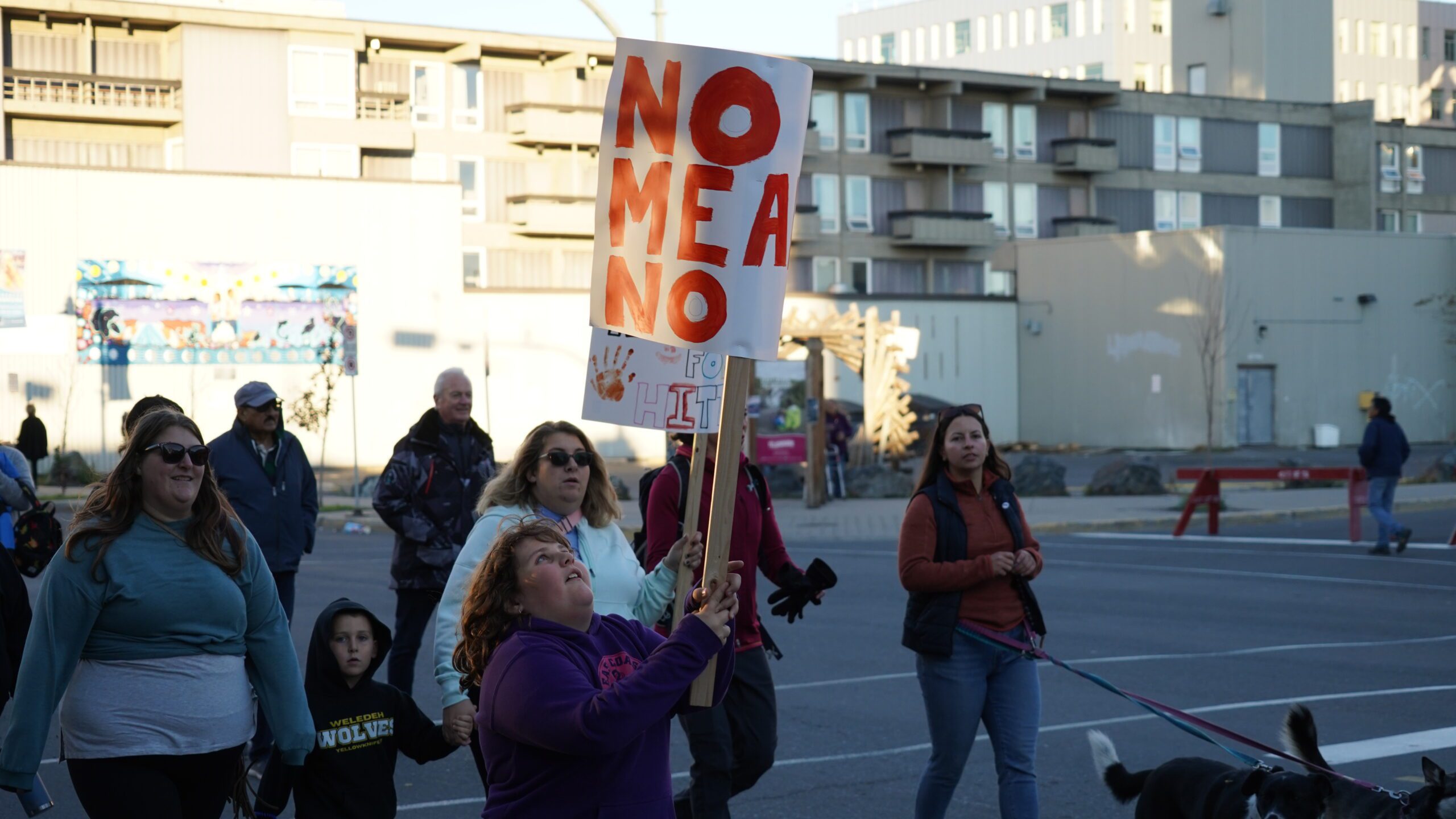
Yellowknifers took the street to stand against gender-based violence. (Josie Jiaxuan Wu/CKLB)
“I’m so glad so many people came tonight,” says Nancy McNeill, the event MC. “I believe strongly in the power of community and the strength of a group of people coming together to demonstrate what they believe.”
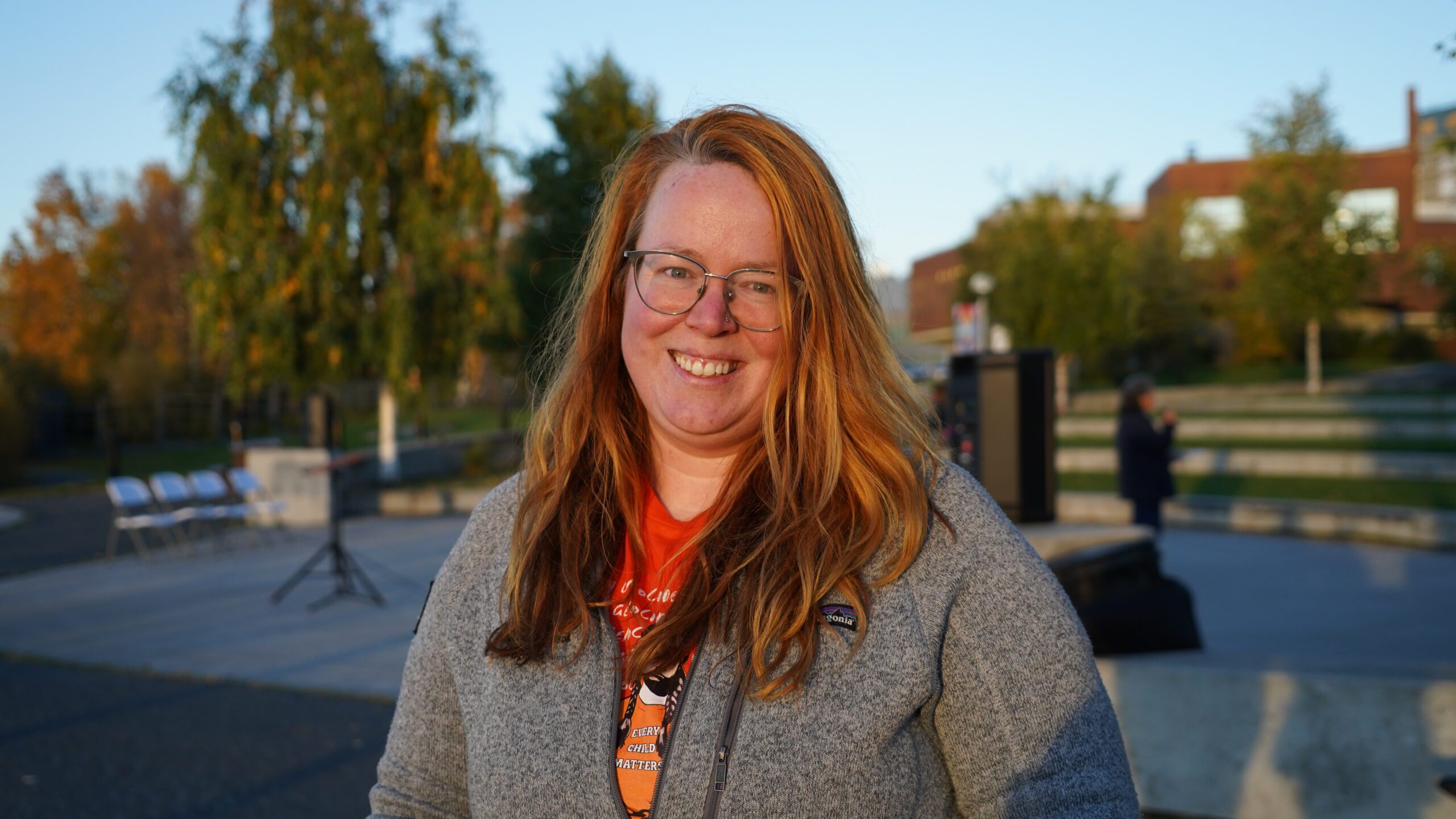
‘This event was a really good snapshot of the fact that Yellowknife is a diverse community that really cares,’ said McNeill. (Josie Jiaxuan Wu/CKLB)
McNeill says that, given the close-knit nature of northern communities, victims may experience a lot of judgement, stigma and fear.
“I think it’s critical for the North that we continue to shine a light on these issues,” says McNeill. “Every march like this is one step in the direction of that future that we want.”

